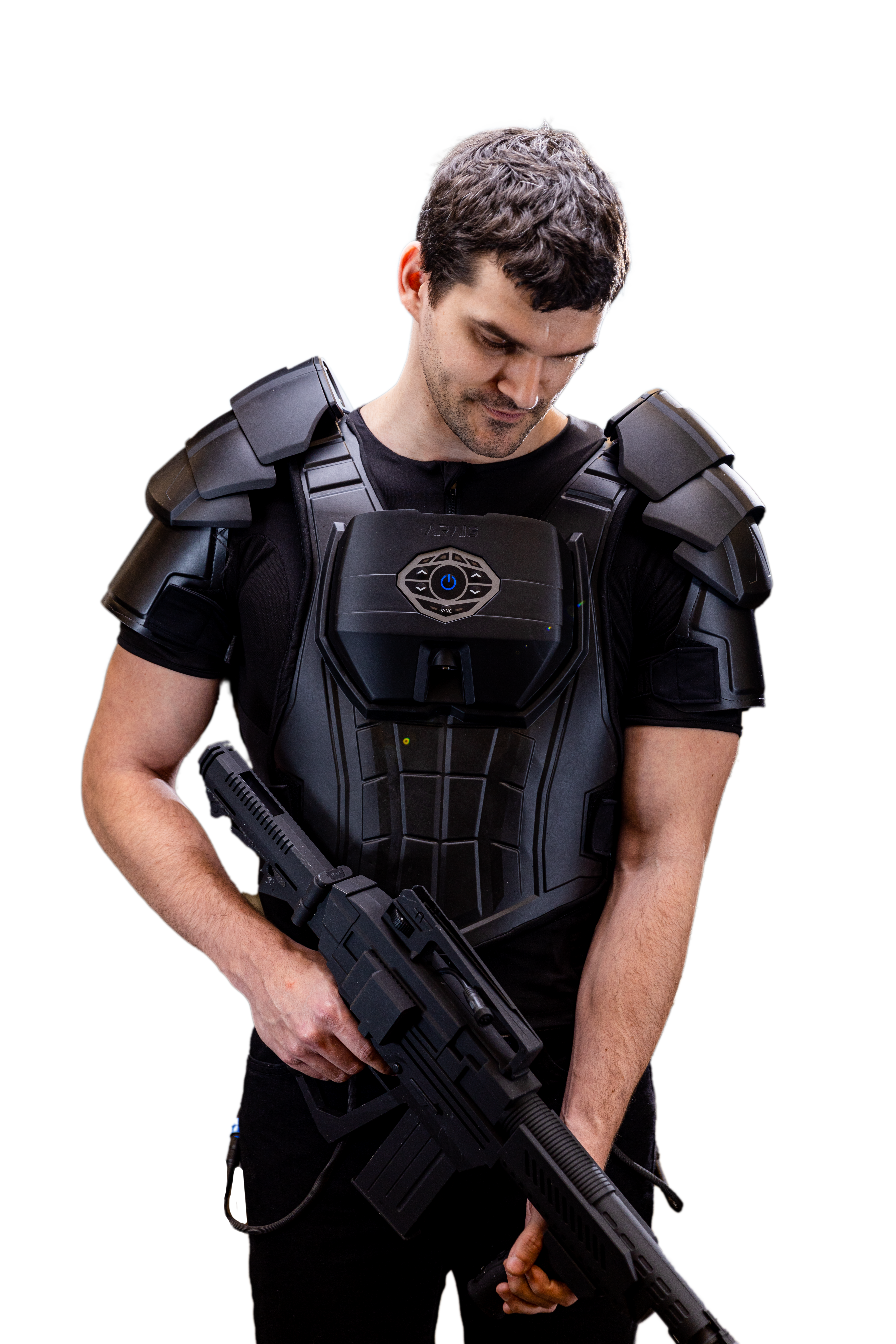By Brandi Olive | Director of Admin
“Efficiencies are best implemented not only when they save money, but also when they positively impact the effectiveness of the organization as it relates to the community they serve.”
This was one of the opening statements of Michael Stanfield, Founder and co-CEO of IFTech, at Cobourg Police’s Pitch the Chief event held November 2022.
The event gave local youth, start-ups, and SMEs an opportunity to pitch solutions for community safety issues to local police, including Police Chief Paul VandeGraaf.
Michael Stanfield, with a background of 31 years in the operations division with Toronto Fire Service – expertise in Operations and Hazardous Materials and served on the CBRNE Team – understands firsthand the importance of safety for first responders.
During the event, Michael addressed the reality of reactive and proactive policing, how the outcomes are greatly publicized, and the need to prepare police for high-stress situations and environments by making training as real as it gets.
“…Knowing what to do and what to say and how to act is a critical decision. These decisions lead to actions, which produce outcomes. It is in these highly stressful moments of domestic dispute, confrontation, dealing with an assailant, felony arrest – it is here lives are most at risk, and decision making is most susceptible to error. This error, however, can be directly attributed to a physiological response of the body under high-stress and high-pressure conditions. The Canadian Department of National Defense calls this the Stress Response. The Stress Response causes actions that are solely instinctive and involuntary, providing no conscious choice of action for the individual. And although there are techniques that help our personnel enhance their decision making to reduce this response, without experiencing these real-world events, it is difficult to train minds and bodies to react optimally when confronted by these high-stress situations and environments… Our police personnel remain vulnerable to the Stress Response and are therefore susceptible to struggle and underperform, not only in times of crisis, but also through their lack of resiliency from critical incident stress, which can lead to PTSD.”
Michael confronted the primary issue all training faces today, explaining that “although virtual training reduces costs, provides flexibility, and allows more participants, there is a problem; this problem directly relates to the Stress Response, to critical decision making, and situational awareness. This problem is called the sensory gap.”
The sensory gap is the failure of connecting what is seen, heard, and felt by the trainee.
“Trainees don’t feel like it’s real, and therefore their reactions are different than if they were in a real-world event…”
At IFTech, they believe that a new training model must be used to prepare personnel psychologically and emotionally for the challenges and situations that they face. Their solution: the Oculus for the body, also known ARAIG (As Real As It Gets).
“When we induce stress, trainees can then practice stress reduction during training.”
The Canadian Department of National Defense recognized the value in this and awarded IFTech a contract back in 2020.
Recognizing the gap in sensory training for our police and military personnel means finding corrective solutions so the Stress Response can be induced and mitigated during training first.
What the ongoing war in Ukraine has revealed is that despite the rise in technological advances, having boots on the ground is the consistent military method for acquiring/holding/defending geography. These personnel are susceptible to stress on the battlefield, which impacts performance. It is this performance that ultimately leads to outcomes.
“Not withstanding overall team performance, Strategic goals are achieved through the success of task level operations by individuals/single players making decisions on the “ground”. Task related outcomes are affected by how well the individual’s physiology responds physically, mentally, and emotionally to the external and internal stressors impacting them during the performance of their task(s). This task could be digging a ditch, relaying communications, operating equipment, or engaging the enemy among other things. This stress can cause auditory exclusion, perceptual narrowing, time distortion, awareness lapse, memory loss, loss of fine motor skills, sense of being overwhelmed, confusion, etcetera. Commanders can give orders, but when, how and if they are carried out well is determined by those in stressful situations who are possibly facing death. This type of stress is the “Z” factor. And if the Z factor cannot be trained for, then task objectives are at risk and can be labeled with greater unpredictability values as stress increases. This stress therefore needs to be applied and mitigated through learning. All value added virtual and live simulation training must consider what has been missed in the past and train their personnel to mitigate the stress effect. Only one product will work with existing systems to do that. This is the ARAIG Battle Suit technology.”
The more realistic the training, the greater it reflects the stress of real-world situations. Consistent exposure to these real-world environments allows personnel to practice mitigation techniques and enter the battlefield with mental preparedness. That preparedness leads to accurate and measured outcomes. Therefore, making training As Real As It Gets is not only relevant, but more necessary than ever.
IFTech would like to apply this paradigm to all training of frontline workers and first responders.












